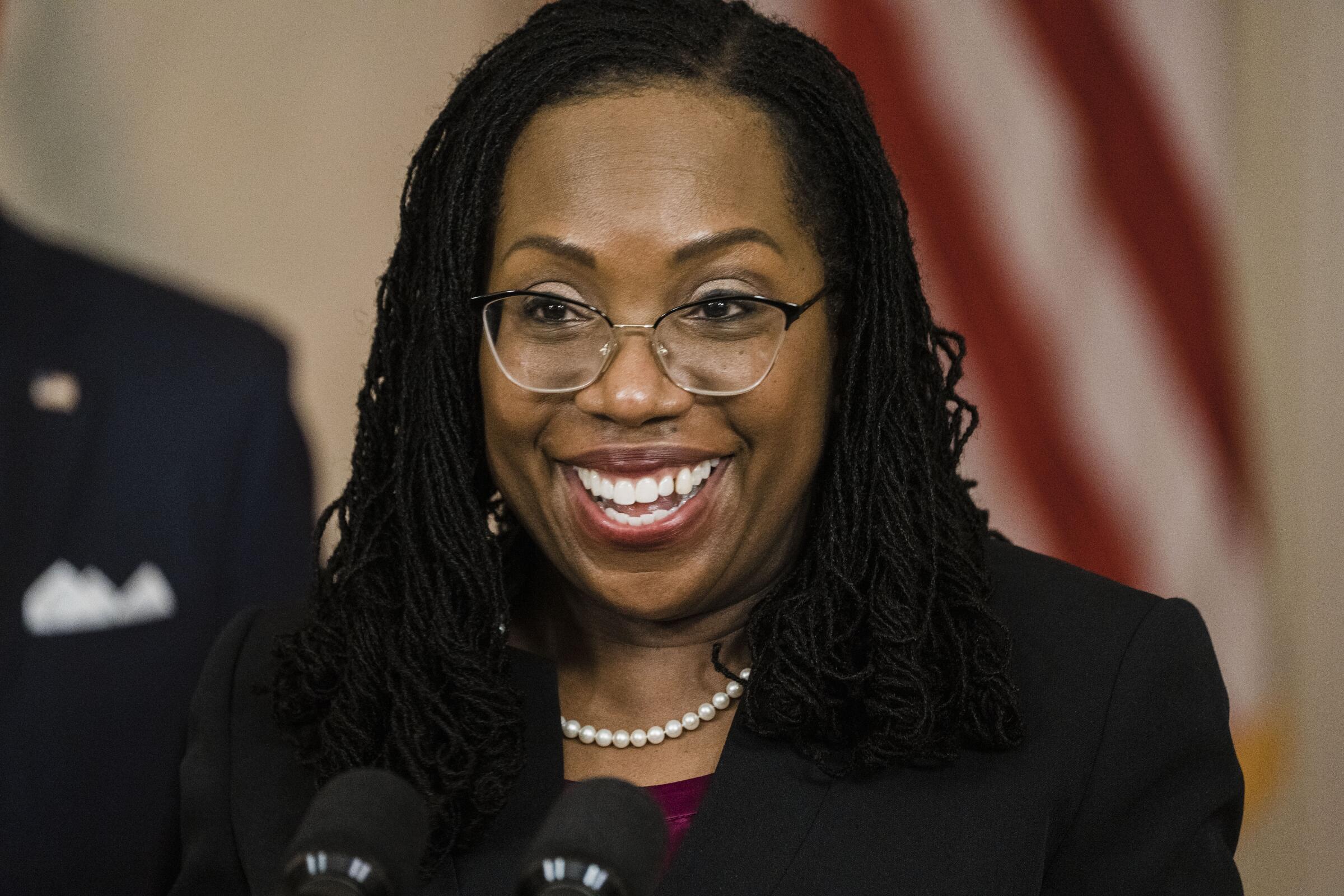Get the L.A. Times Politics newsletter
Deeply reported insights into legislation, politics and policy from Sacramento, Washington and beyond. In your inbox twice per week.
You may occasionally receive promotional content from the Los Angeles Times.

WASHINGTON — The president’s nominee to the Supreme Court needs a majority vote in the Senate to be confirmed. And in recent years, senators have rarely voted for a nominee of the opposite party.
After the 2020 election, the Senate emerged with 50 Republicans and 50 who vote as Democrats, with Vice President Kamala Harris serving as the presiding officer.
Judge Ketanji Brown Jackson, the first Black woman nominated to the high court, goes before an evenly divided Senate Judiciary Committee this week. Here’s a look at the process.
They are pretty good, considering the situation. Because Vice President Harris can break ties, Democrats are confident they can confirm Jackson as long as all the Democrats and the two independent senators who caucus with them vote in her favor.
It’s also possible that a couple of Republican senators might vote for Jackson, such as Sens. Susan Collins of Maine and Lisa Murkowski of Alaska, who both voted to confirm Jackson last year to the U.S. Court of Appeals for the District of Columbia Circuit. Neither of the senators have announced yet how they plan to vote.
Biden’s nominee is likely to face harsh questions from several Senate Republicans this week.
Not exactly. Typically that is how it happens, yes. But there are ways around it if she does not receive a majority of the votes at the committee and there is a tie.
The committee is evenly split, with 11 Democrats and 11 Republicans. If one of the Republicans votes for her, her nomination could be approved and sent to the Senate floor.
If there’s a tie, it gets more complicated.
No. A couple of things could happen.
The committee could vote to send the nomination to the Senate floor without a majority recommendation from the committee.
That would also require a majority vote by the committee. It’s possible that at least one Republican who opposes her confirmation might nonetheless vote to send the nomination to the floor.
There is precedent for that in the 1991 confirmation of Justice Clarence Thomas. The Judiciary Committee, chaired then by Sen. Joe Biden, split 7 to 7 on his nomination, but voted to send the nomination to the floor for a final vote. He was eventually confirmed on a 52-48 vote.
Under the Senate rules adopted last year, Majority Leader Charles E. Schumer (D-N.Y.) can file a motion to discharge a nominee from a deadlocked and divided committee. It would require a majority vote of the full Senate, where the vice president could break a tie.
That would allow the Senate to schedule a final debate on the nomination of Judge Jackson and then a vote to confirm her to the Supreme Court.
There has been some speculation about that. But most experts tend to agree that she would have the authority.
Get the L.A. Times Politics newsletter
Deeply reported insights into legislation, politics and policy from Sacramento, Washington and beyond. In your inbox twice per week.
You may occasionally receive promotional content from the Los Angeles Times.